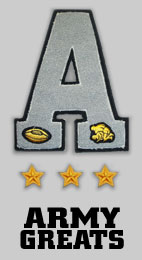
Home
Classes
Coaches
Army Greats
Army Lore
Teams
Of Interest...
About
Submissions
Contact
Newsletter
Credits
Click on small photos
 Cadet will not Lie, Cheat, Steal, or Tolerate Those Who Do Cadet will not Lie, Cheat, Steal, or Tolerate Those Who Do
 USMA at West Point USMA at West Point
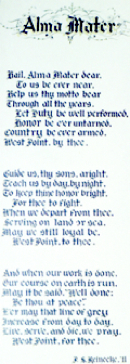 We have changed the wording of our Alma Mater to reflect the fact that our Women Graduates have also given their lives serving this Nation.
We have changed the wording of our Alma Mater to reflect the fact that our Women Graduates have also given their lives serving this Nation.
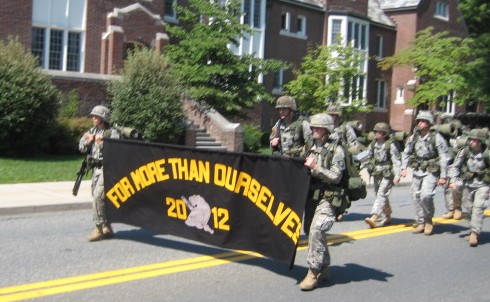 ----- Class of 2012 Motto ------ - "For More Than Ourselves" -Thank you Class of 2012 - for the Honor of Marching with you
The Class of 62 - Can Do ----- Class of 2012 Motto ------ - "For More Than Ourselves" -Thank you Class of 2012 - for the Honor of Marching with you
The Class of 62 - Can Do
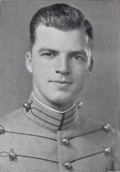 Remember - The Soldiers you will lead Always Come First Remember - The Soldiers you will lead Always Come First
 Motto -- Duty Honor Country Motto -- Duty Honor Country
 The Cadets of West Point
The Cadets of West Point
 They played perhaps Army's Greatest Game. They were the Team that Gave The Most They played perhaps Army's Greatest Game. They were the Team that Gave The Most
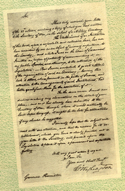 Washington's Letter recommending the establishment of the Academy and the History of West Point
Washington's Letter recommending the establishment of the Academy and the History of West Point
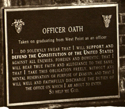
The Oaths We Take
 West Point's Medal of Honor Recipients West Point's Medal of Honor Recipients
 Jefferson Hall - the Academy's new Library.
Jefferson Hall - the Academy's new Library.
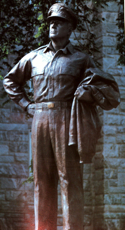 Douglas MacArthur
Douglas MacArthur
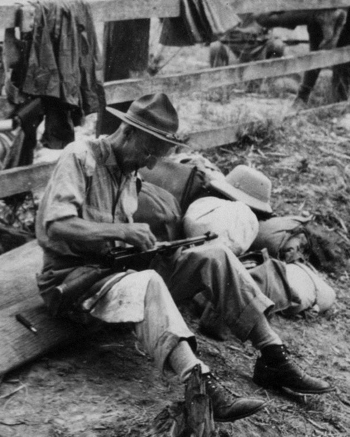
Vinegar Joe Stilwell cleaning his Thompson -The Walkout -Burma 1942
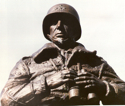 George Patton
George Patton
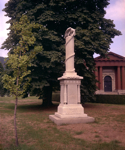 The Monuments of West Point
The Monuments of West Point
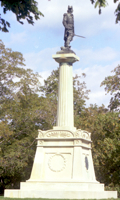 Kosciuszko Monument - Guarding the Hudson ensuring there is no passage of British Man of War
Kosciuszko Monument - Guarding the Hudson ensuring there is no passage of British Man of War
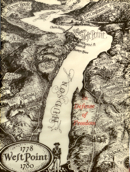 Forts of the Hudson
Forts of the Hudson
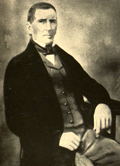
So we'll sing our reminiscences of Benny Havens, Oh!
 Academic Excellence Academic Excellence
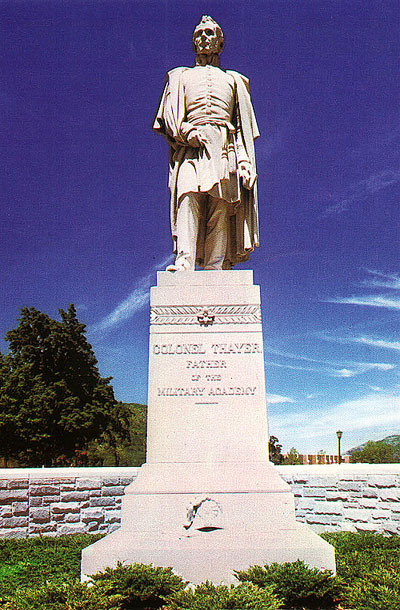 ---- Colonel Thayer ---- Colonel Thayer
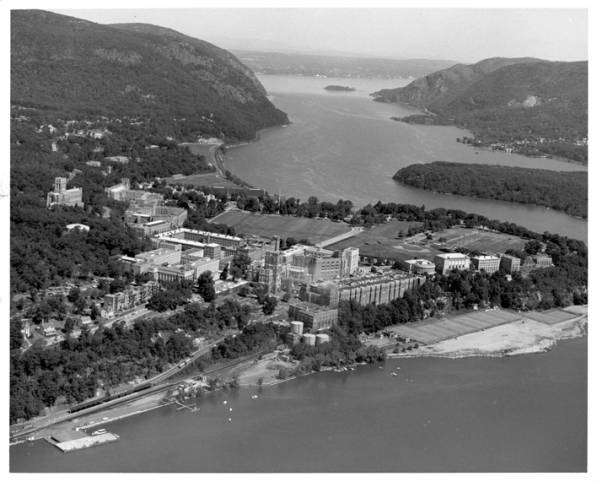 West Point West Point
 Trophy Point Trophy Point
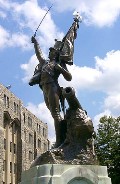 L'Ecole Polytechnique Monument, or The French Monument by Cadets L'Ecole Polytechnique Monument, or The French Monument by Cadets
 Superintendent's Quarters viewed from Thayer Road Superintendent's Quarters viewed from Thayer Road
 Superintendant was not Happy
Black '57
Superintendant was not Happy
Black '57
 Home of the Dean Home of the Dean
 Quarters 104 Quarters 104
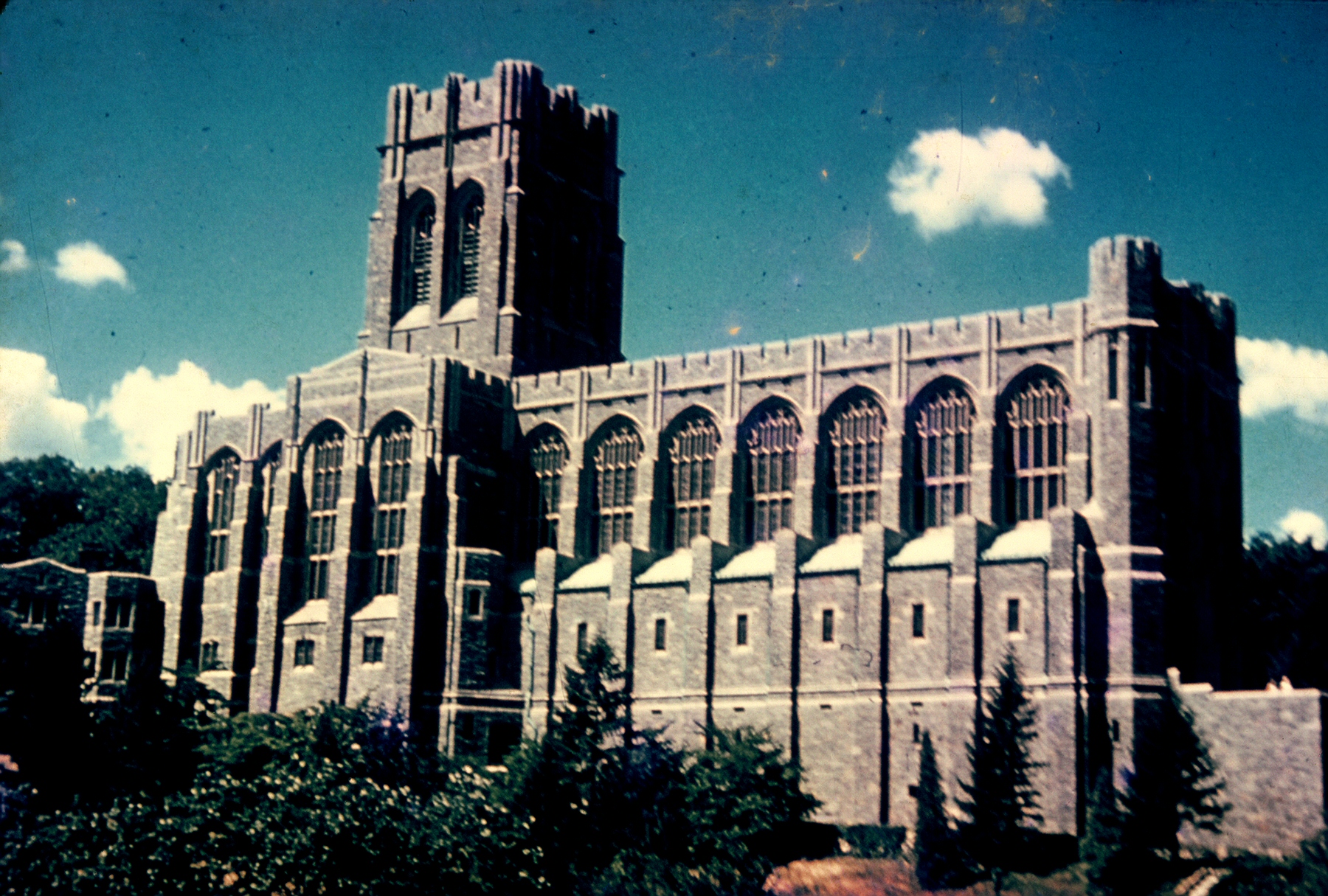 Cadet Chapel Cadet Chapel
 Michie Stadium Michie Stadium
 Arvin Gym Arvin Gym
 Kimsey Athletic Center Kimsey Athletic Center
 Holleder Center Holleder Center
 Washington Monument Washington Monument
 United States Military Academy Band United States Military Academy Band
 Cadet Barracks Cadet Barracks
 Rugby Complex Rugby Complex
 Great Chain Great Chain
 Plain looking toward Washington Hall Plain looking toward Washington Hall
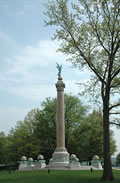 Battle Monument Battle Monument
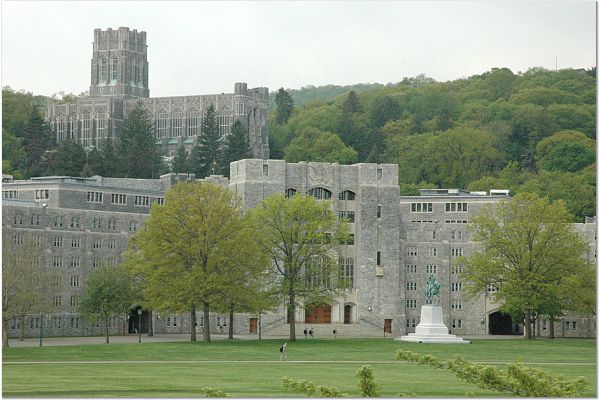 Washington Hall with Cadet Chapel on rocks above. Washington Hall with Cadet Chapel on rocks above.
 Hudson River Hudson River
 Captured Trophies Captured Trophies
 Battle Monument Battle Monument
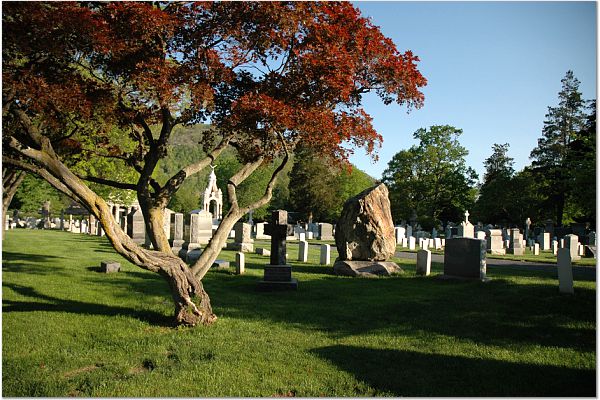 West Point Cemetery West Point Cemetery
 Plain Plain
 Cost to this Nation of Differing Views Cost to this Nation of Differing Views
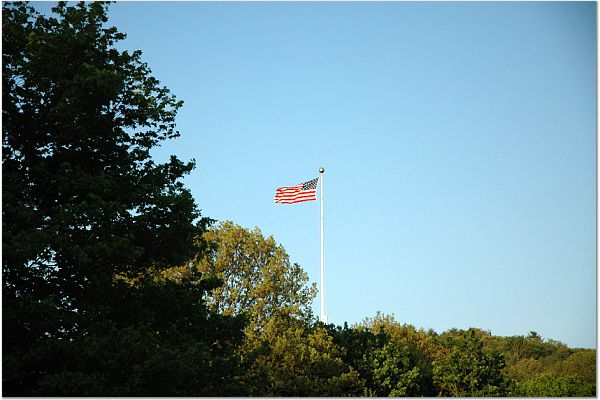 Trophy Point -- Our Flag Trophy Point -- Our Flag
 Corps of Cadets Formed in Companies early 1960s Corps of Cadets Formed in Companies early 1960s
 Corps of Cadets Formed in Companies early 1960s Corps of Cadets Formed in Companies early 1960s
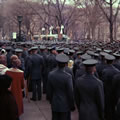 Sending the Army Team off to Beat Navy Sending the Army Team off to Beat Navy
 Army Mule Army Mule
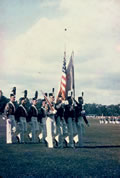 Color Guard Color Guard
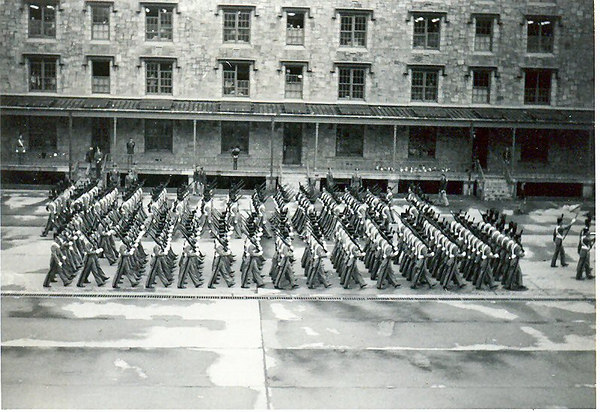
Band Box Review Early 1950's in Central Area
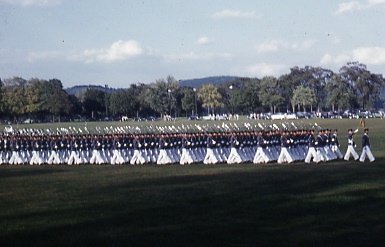 Battalion Mass Early 50's Battalion Mass Early 50's
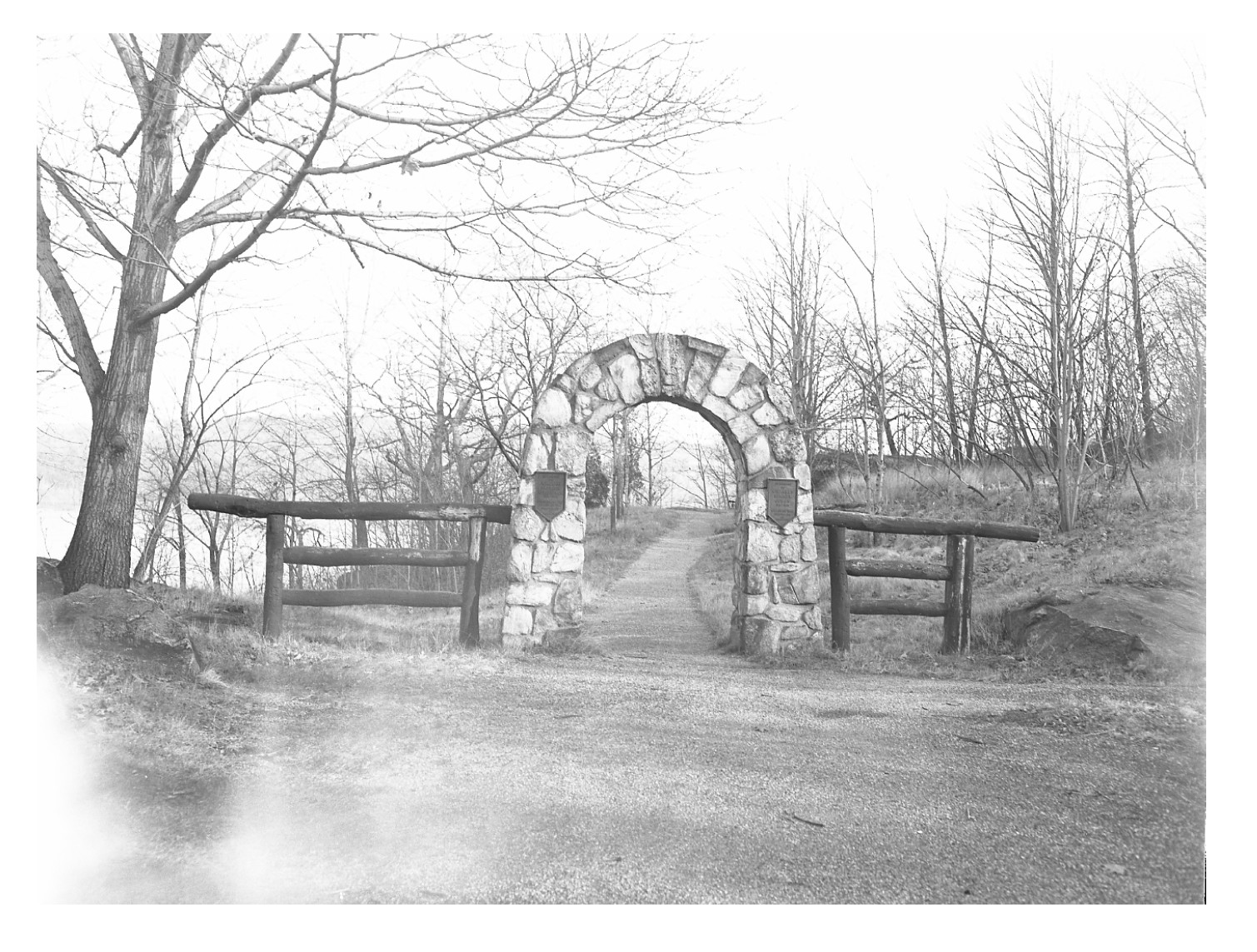 Flirtation Walk Flirtation Walk
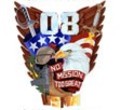
 Arvin Gym Arvin Gym
Duty Honor Country
 Cadet will not Lie, Cheat, Steal, or Tolerate Those Who Do Cadet will not Lie, Cheat, Steal, or Tolerate Those Who Do
 Motto -- Duty Honor Country Motto -- Duty Honor Country
 Remember - The Soldiers you will lead Always Come First Remember - The Soldiers you will lead Always Come First

 Academic Excellence Academic Excellence
 --They played perhaps Army's Greatest Game. They were the Team that Gave The Most --They played perhaps Army's Greatest Game. They were the Team that Gave The Most
 Colonel Thayer Colonel Thayer
 West Point mid 60's West Point mid 60's
 Trophy Point Trophy Point
 L'Ecole Polytechnique Monument, or The French Monument by Cadets L'Ecole Polytechnique Monument, or The French Monument by Cadets
 Superintendent's Quarters viewed from Thayer Road Superintendent's Quarters viewed from Thayer Road
 Cadet Chapel Cadet Chapel
 Michie Stadium Michie Stadium
 Arvin Gym Arvin Gym
 Kimsey Athletic Center Kimsey Athletic Center
 Holleder Center Holleder Center
 Washington Monument Washington Monument
 United States Military Academy Band United States Military Academy Band
 Barracks Barracks
 Rugby Complex Rugby Complex
 Great Chain Great Chain
 Plain looking toward Washington Hall Plain looking toward Washington Hall
 Battle Monument Battle Monument
 Washington Hall with Cadet Chapel on rocks above. Washington Hall with Cadet Chapel on rocks above.
 Hudson River Hudson River
 Captured Trophies Captured Trophies
 Battle Monument Battle Monument
 West Point Cemetery West Point Cemetery
 Plain Plain
 Cost to this Nation of Differing Views Cost to this Nation of Differing Views
 Trophy Point -- Our Flag Trophy Point -- Our Flag
 Corps of Cadets Formed in Companies early 1960s Corps of Cadets Formed in Companies early 1960s
 Corps of Cadets Formed in Companies early 1960s Corps of Cadets Formed in Companies early 1960s
 Sending the Army Team off to Beat Navy Sending the Army Team off to Beat Navy
 Army Mule Army Mule
 Color Guard Color Guard

Band Box Review Early 1950's in Central Area
 Battalion Mass Early 50's Battalion Mass Early 50's
 Flirtation Walk Flirtation Walk
 Cadet will not Lie, Cheat, Steal, or Tolerate Those Who Do Cadet will not Lie, Cheat, Steal, or Tolerate Those Who Do
 Motto -- Duty Honor Country Motto -- Duty Honor Country
 Remember - The Soldiers you will lead Always Come First Remember - The Soldiers you will lead Always Come First
 Academic Excellence Academic Excellence
 They played perhaps Army's Greatest Game. They were the Team that Gave The Most They played perhaps Army's Greatest Game. They were the Team that Gave The Most
 Colonel Thayer Colonel Thayer
 West Point mid 60's West Point mid 60's
 Trophy Point Trophy Point
 L'Ecole Polytechnique Monument, or The French Monument by Cadets L'Ecole Polytechnique Monument, or The French Monument by Cadets
 Superintendent's Quarters viewed from Thayer Road Superintendent's Quarters viewed from Thayer Road
 Cadet Chapel Cadet Chapel
 Michie Stadium Michie Stadium
 Arvin Gym Arvin Gym
 Kimsey Athletic Center Kimsey Athletic Center
 Holleder Center Holleder Center
 Washington Monument Washington Monument
 United States Military Academy Band United States Military Academy Band
 Barracks Barracks
 Rugby Complex Rugby Complex
 Great Chain Great Chain
 Plain looking toward Washington Hall Plain looking toward Washington Hall
 Battle Monument Battle Monument
 Washington Hall with Cadet Chapel on rocks above. Washington Hall with Cadet Chapel on rocks above.
 Hudson River Hudson River
 Captured Trophies Captured Trophies
 Battle Monument Battle Monument
 West Point Cemetery West Point Cemetery
 Plain Plain
 - Cost to this Nation of Differing Views - Cost to this Nation of Differing Views
 Trophy Point -- Our Flag Trophy Point -- Our Flag
 Corps of Cadets Formed in Companies early 1960s Corps of Cadets Formed in Companies early 1960s
 Corps of Cadets Formed in Companies early 1960s Corps of Cadets Formed in Companies early 1960s
 Sending the Army Team off to Beat Navy Sending the Army Team off to Beat Navy
 - Army Mule - Army Mule
 Color Guard Color Guard

Band Box Review Early 1950's in Central Area
 Battalion Mass Early 50's Battalion Mass Early 50's
 Flirtation Walk Flirtation Walk
Click on Photos Below
Please note it takes a couple of hours to update all pages as material is added to this section. You may have to return to the home page to see all of the current links
 Cadet will not Lie, Cheat, Steal, or Tolerate Those Who Do Cadet will not Lie, Cheat, Steal, or Tolerate Those Who Do
 We have changed the wording of our Alma Mater to reflect the fact that our Women Graduates have also given their lives serving this Nation.
We have changed the wording of our Alma Mater to reflect the fact that our Women Graduates have also given their lives serving this Nation.
 ----- Class of 2012 Motto ----- "For More Than Ourselves" Thank you Class of 2012 for the Honor of Marching with you
The Class of 62 ----- Class of 2012 Motto ----- "For More Than Ourselves" Thank you Class of 2012 for the Honor of Marching with you
The Class of 62
 ---------- Class of 2008 --------- ----- Class Crest & Motto ----- "No Mission Too Great" ---------- Class of 2008 --------- ----- Class Crest & Motto ----- "No Mission Too Great"
---- Their Commencement ---- "Here am I; Send me." Thank you Class of 2008 and Please Thank the Men & Women --- the Soldiers you will lead ---
The Class of 62.
 Motto -- Duty Honor Country Motto -- Duty Honor Country
 Remember - The Soldiers you will lead Always Come First Remember - The Soldiers you will lead Always Come First
 Jefferson Hall - the Academy's new Library.
Jefferson Hall - the Academy's new Library.
 Academic Excellence Academic Excellence
 --They played perhaps Army's Greatest Game. They were the Team that Gave The Most --They played perhaps Army's Greatest Game. They were the Team that Gave The Most
 ---- Colonel Thayer ---- Colonel Thayer
 West Point mid 60's West Point mid 60's
 Trophy Point Trophy Point
 L'Ecole Polytechnique Monument, or The French Monument by Cadets L'Ecole Polytechnique Monument, or The French Monument by Cadets
 Superintendent's Quarters viewed from Thayer Road Superintendent's Quarters viewed from Thayer Road
 Cadet Chapel Cadet Chapel
 Michie Stadium Michie Stadium
 Arvin Gym Arvin Gym
 Kimsey Athletic Center Kimsey Athletic Center
 Holleder Center Holleder Center
 Washington Monument Washington Monument
 United States Military Academy Band United States Military Academy Band
 Barracks Barracks
 Rugby Complex Rugby Complex
 Great Chain Great Chain
 Plain looking toward Washington Hall Plain looking toward Washington Hall
 Battle Monument Battle Monument
 Washington Hall with Cadet Chapel on rocks above. Washington Hall with Cadet Chapel on rocks above.
 Hudson River Hudson River
 Captured Trophies Captured Trophies
 Battle Monument Battle Monument
 West Point Cemetery West Point Cemetery
 Plain Plain
 - Cost to this Nation of Differing Views - Cost to this Nation of Differing Views
 Trophy Point -- Our Flag Trophy Point -- Our Flag
 Corps of Cadets Formed in Companies early 1960s Corps of Cadets Formed in Companies early 1960s
 Corps of Cadets Formed in Companies early 1960s Corps of Cadets Formed in Companies early 1960s
 Sending the Army Team off to Beat Navy Sending the Army Team off to Beat Navy
 - Army Mule - Army Mule
 Color Guard Color Guard

Band Box Review Early 1950's in Central Area
 Battalion Mass Early 50's Battalion Mass Early 50's
 Flirtation Walk Flirtation Walk

 Arvin Gym Arvin Gym
Duty Honor Country
 Cadet will not Lie, Cheat, Steal, or Tolerate Those Who Do Cadet will not Lie, Cheat, Steal, or Tolerate Those Who Do
 Motto -- Duty Honor Country Motto -- Duty Honor Country
 Remember - The Soldiers you will lead Always Come First Remember - The Soldiers you will lead Always Come First

 Academic Excellence Academic Excellence
 --They played perhaps Army's Greatest Game. They were the Team that Gave The Most --They played perhaps Army's Greatest Game. They were the Team that Gave The Most
 ---- Colonel Thayer ---- Colonel Thayer
 West Point mid 60's West Point mid 60's
 Trophy Point Trophy Point
 L'Ecole Polytechnique Monument, or The French Monument by Cadets L'Ecole Polytechnique Monument, or The French Monument by Cadets
 Superintendent's Quarters viewed from Thayer Road Superintendent's Quarters viewed from Thayer Road
 Cadet Chapel Cadet Chapel
 Michie Stadium Michie Stadium
 Arvin Gym Arvin Gym
 Kimsey Athletic Center Kimsey Athletic Center
 Holleder Center Holleder Center
 Washington Monument Washington Monument
 United States Military Academy Band United States Military Academy Band
 Barracks Barracks
 Rugby Complex Rugby Complex
 Great Chain Great Chain
 Plain looking toward Washington Hall Plain looking toward Washington Hall
 Battle Monument Battle Monument
 Washington Hall with Cadet Chapel on rocks above. Washington Hall with Cadet Chapel on rocks above.
 Hudson River Hudson River
 Captured Trophies Captured Trophies
 Battle Monument Battle Monument
 West Point Cemetery West Point Cemetery
 Plain Plain
 - Cost to this Nation of Differing Views - Cost to this Nation of Differing Views
 Trophy Point -- Our Flag Trophy Point -- Our Flag
 Corps of Cadets Formed in Companies early 1960s Corps of Cadets Formed in Companies early 1960s
 Corps of Cadets Formed in Companies early 1960s Corps of Cadets Formed in Companies early 1960s
 Sending the Army Team off to Beat Navy Sending the Army Team off to Beat Navy
 - Army Mule - Army Mule
 Color Guard Color Guard

Band Box Review Early 1950's in Central Area
 Battalion Mass Early 50's Battalion Mass Early 50's
 Flirtation Walk Flirtation Walk
 Cadet will not Lie, Cheat, Steal, or Tolerate Those Who Do Cadet will not Lie, Cheat, Steal, or Tolerate Those Who Do
 Motto -- Duty Honor Country Motto -- Duty Honor Country
 Remember - The Soldiers you will lead Always Come First Remember - The Soldiers you will lead Always Come First
 Academic Excellence Academic Excellence
 --They played perhaps Army's Greatest Game. They were the Team that Gave The Most --They played perhaps Army's Greatest Game. They were the Team that Gave The Most
 ---- Colonel Thayer ---- Colonel Thayer
 West Point mid 60's West Point mid 60's
 Trophy Point Trophy Point
 L'Ecole Polytechnique Monument, or The French Monument by Cadets L'Ecole Polytechnique Monument, or The French Monument by Cadets
 Superintendent's Quarters viewed from Thayer Road Superintendent's Quarters viewed from Thayer Road
 Cadet Chapel Cadet Chapel
 Michie Stadium Michie Stadium
 Arvin Gym Arvin Gym
 Kimsey Athletic Center Kimsey Athletic Center
 Holleder Center Holleder Center
 Washington Monument Washington Monument
The material below this point is a site a work area.


Page 2
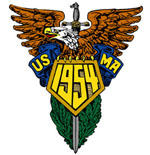 The '54 Crest
The '54 Crest
 General MacArthur stated it would take
General MacArthur stated it would take "at least 10 years" to return Army Football to Respectability
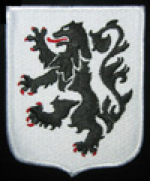 28th Infantry Regiment Black Lion Award is intended to go to the person on his team "who best exemplifies the character of Don Holleder: leadership, courage, devotion to duty, self-sacrifice, and - above all -
28th Infantry Regiment Black Lion Award is intended to go to the person on his team "who best exemplifies the character of Don Holleder: leadership, courage, devotion to duty, self-sacrifice, and - above all - an unselfish concern for the team ahead of himself."
 General George Patton
General George Patton "The Army moves as a team, eats as a team, and fights as a team."
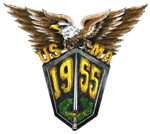 The '55 Crest
The '55 Crest
 They played perhaps Army's Greatest Game. They played perhaps Army's Greatest Game.They were the Team that Gave The Most
 Don Holleder Remember - The Soldiers you will lead Always Come First
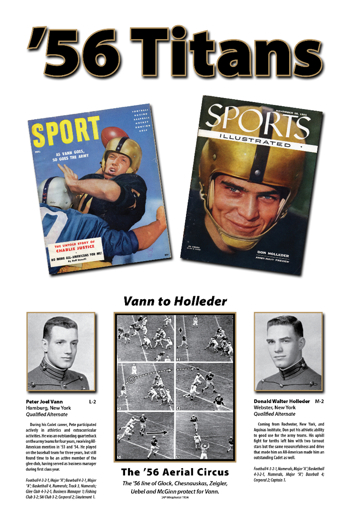 Vann and Holleder Vann and Holleder
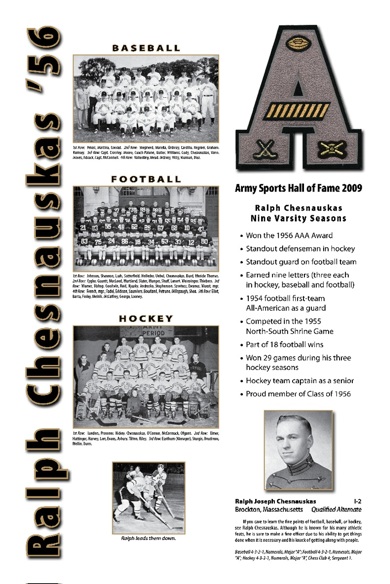 9 Army A's 9 Army A's
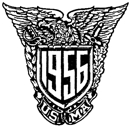 The '56 Crest
The '56 Crest
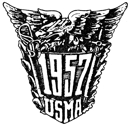 The '57 Crest
The '57 Crest
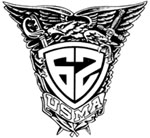 Can Do
Can Do
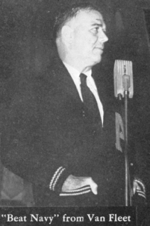 Gen Van Fleet addressing the Corps prior to the Navy Game
Gen Van Fleet addressing the Corps prior to the Navy Game
 Constructed under supervision of Jay Gould "54 and the Ord Dept from a German Rocket Gun captured at Kasserine Pass. First used in the Duke Game.
Constructed under supervision of Jay Gould "54 and the Ord Dept from a German Rocket Gun captured at Kasserine Pass. First used in the Duke Game.
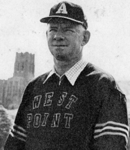 COL "Red" Reeder granted the Cheerleaders Corps Squad status to obtain financial support for their spirit-inducing initiatives.
COL "Red" Reeder granted the Cheerleaders Corps Squad status to obtain financial support for their spirit-inducing initiatives.
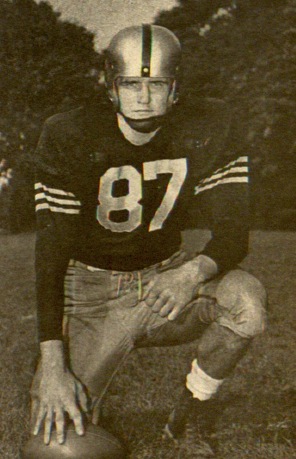 Bob Mischak - - It should be pointed out that Bob was an All American selection, but is not recognized by the Academy as such because of the organization which selected him. Bob Mischak - - It should be pointed out that Bob was an All American selection, but is not recognized by the Academy as such because of the organization which selected him.
 Ubel scores 3 Times against Navy - Vann's facking results in Peter getting tackled - #10 on the ground behind Ubel
Ubel scores 3 Times against Navy - Vann's facking results in Peter getting tackled - #10 on the ground behind Ubel
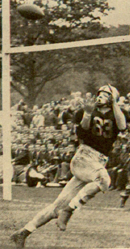 Vann to Sisson
Vann to Sisson
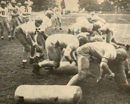 Army's B Squad
Army's B Squad
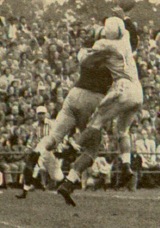 Vann to Mischak. Vann to Mischak.
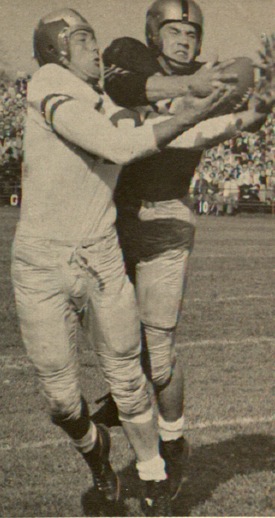 Uebel Intercepts Uebel Intercepts
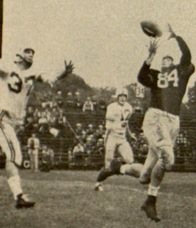 Cody to Don Holleder Cody to Don Holleder
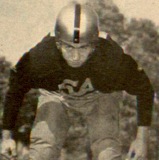 Lasley Lasley
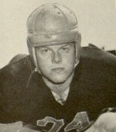 Frank Hicks Frank Hicks
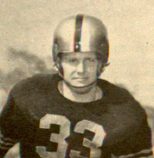 Burd Burd
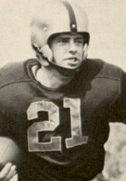 Bill Purdue Bill Purdue
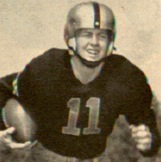 Cody Cody
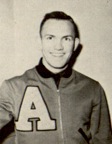 Meador Mgr Meador Mgr
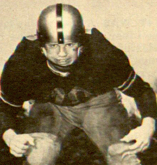 Ron Melnick Ron Melnick
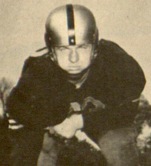 Ralph Chesnauskas Ralph Chesnauskas
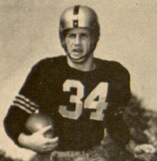 Pat Uebel Pat Uebel
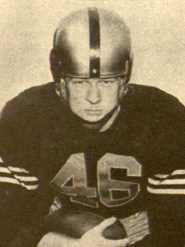 Tommy Bell Tommy Bell
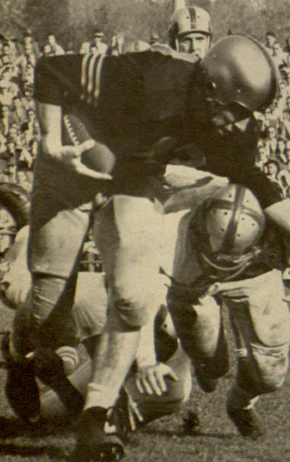 Sisson headed for another score Sisson headed for another score
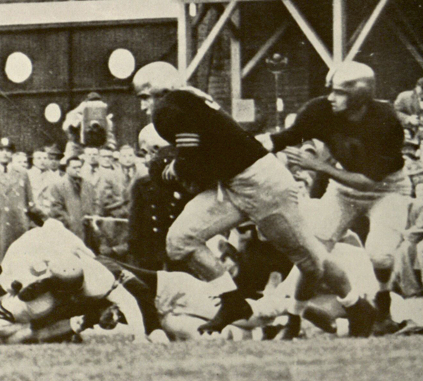 Peter Vann stuffs the ball in Jerry's gut Peter Vann stuffs the ball in Jerry's gut
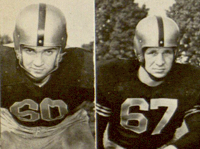 Leroy Lunn & Jerry Lodge Leroy Lunn & Jerry Lodge
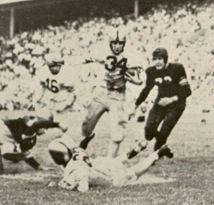 Uebel after taking the handoff from Hagan
Uebel after taking the handoff from Hagan
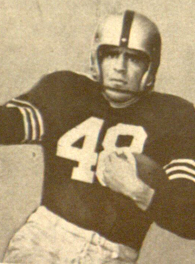 Attaya - Army's Fullback
Attaya - Army's Fullback
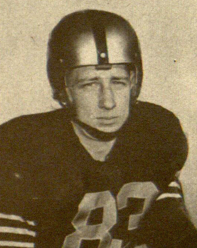 Sisson - one of 3 Great Ends
Sisson - one of 3 Great Ends
 Bob Mischak Bob Mischak
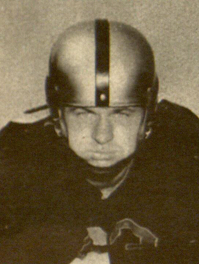 Ralph Chesnauskas Ralph Chesnauskas
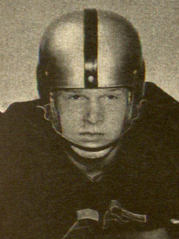 Bob Farris Bob Farris
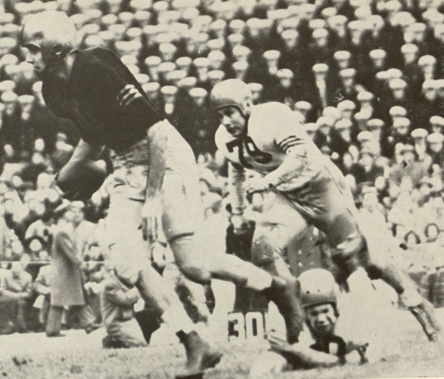 Vann moving out of the pocket
Vann moving out of the pocket
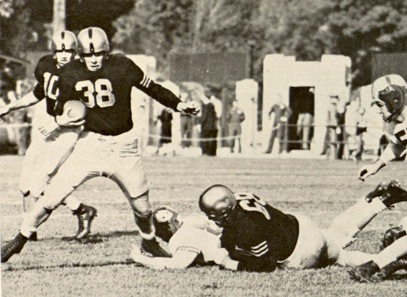 Peter Vann 10, Billy Chance 38, Herdman 68
Peter Vann 10, Billy Chance 38, Herdman 68
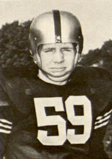 Ken Kramer Ken Kramer
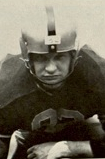 Joe Lapchick Joe Lapchick
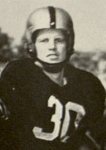 Kirk Cockrell Kirk Cockrell
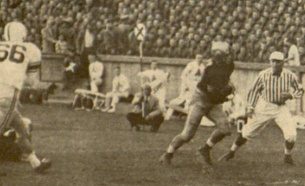 Lodge going down tosses to Paul Schweikert for score. Lodge going down tosses to Paul Schweikert for score.
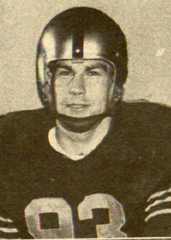 Dick Zeigler Dick Zeigler
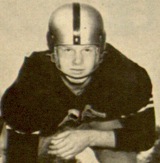 Bob FarrisPlayed the 2d half of the Navy Game blind in one eye. Bob FarrisPlayed the 2d half of the Navy Game blind in one eye.
 Pat Uebel Pat Uebel
 Tommy Bell Tommy Bell
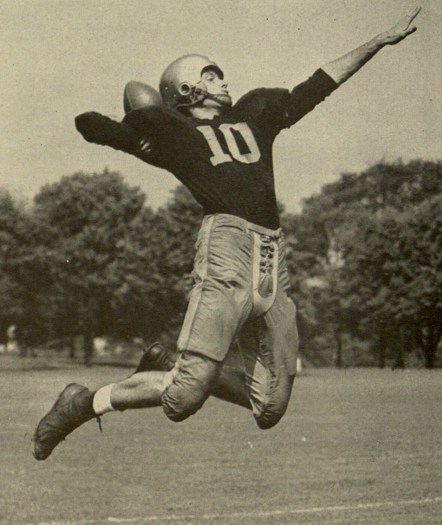 Peter Vann Peter Vann
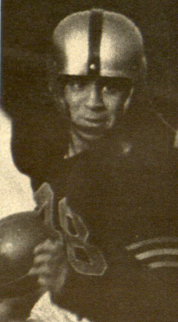 Freddie Attaya Freddie Attaya
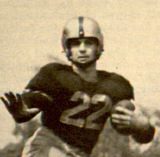 Mike Zeigler Mike Zeigler
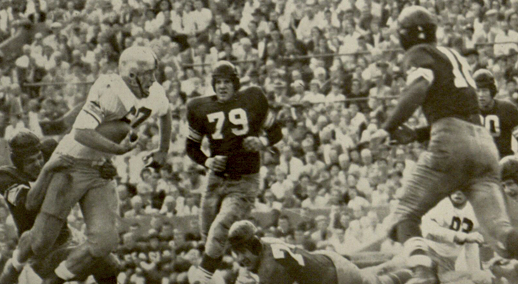 Jerry Lodge wearing #67, playing fullback. Jerry Lodge wearing #67, playing fullback.
 Johnny Wing Johnny Wing
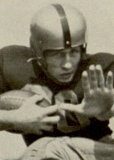 Lowell Sisson Lowell Sisson
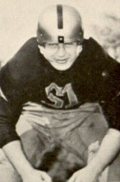 Norm Stephen Norm Stephen
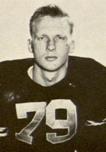 Jack Krause Jack Krause
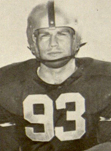 Dick Ziegler Dick Ziegler
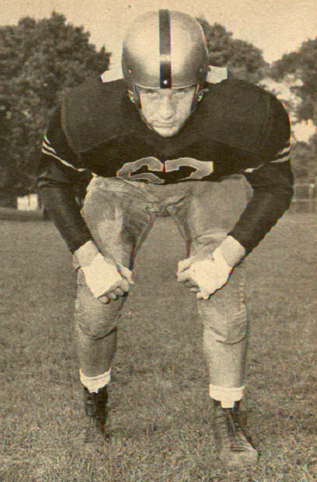 Jerry Lodge Jerry Lodge
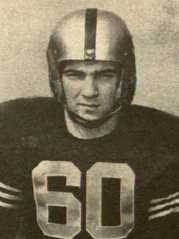 Leroy Lunn Leroy Lunn
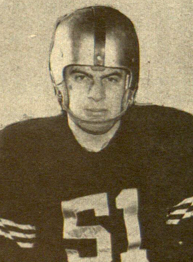 Norm Stephen Norm Stephen
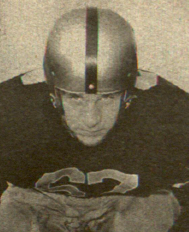 Jerry Lodge Jerry Lodge
 Corps of Cadets for Navy Game Corps of Cadets for Navy Game
 Can Do
Can Do
 General MacArthur stated it would take
General MacArthur stated it would take "at least 10 years" to return Army Football to Respectability
 General George Patton
General George Patton "The Army moves as a team, eats as a team, and fights as a team."
 Don Holleder Remember - The Soldiers you will lead Always Come First
 The '54 Crest
The '54 Crest
 The '55 Crest
The '55 Crest
 28th Infantry Regiment Black Lion Award is intended to go to the person on his team "who best exemplifies the character of Don Holleder: leadership, courage, devotion to duty, self-sacrifice, and - above all -
28th Infantry Regiment Black Lion Award is intended to go to the person on his team "who best exemplifies the character of Don Holleder: leadership, courage, devotion to duty, self-sacrifice, and - above all - an unselfish concern for the team ahead of himself."
 They played perhaps Army's Greatest Game. They played perhaps Army's Greatest Game.They were the Team that Gave The Most
 The '56 Crest
The '56 Crest
 The '57 Crest
The '57 Crest
|


 General MacArthur stated it would take
General MacArthur stated it would take  28th Infantry Regiment
28th Infantry Regiment 
 They played perhaps Army's Greatest Game.
They played perhaps Army's Greatest Game.


























































 General MacArthur stated it would take
General MacArthur stated it would take 



 They played perhaps Army's Greatest Game.
They played perhaps Army's Greatest Game.



































 Cadet Barracks
Cadet Barracks




















